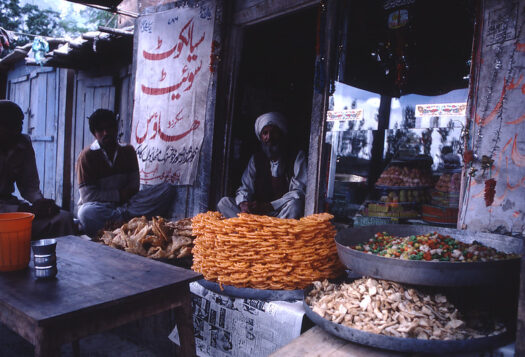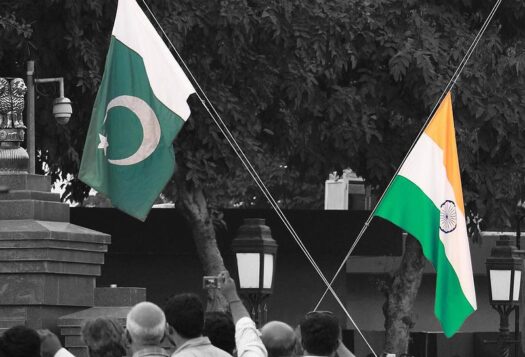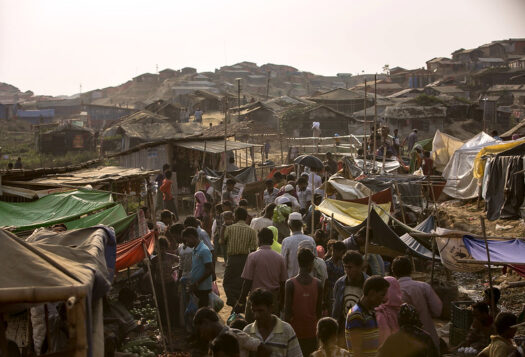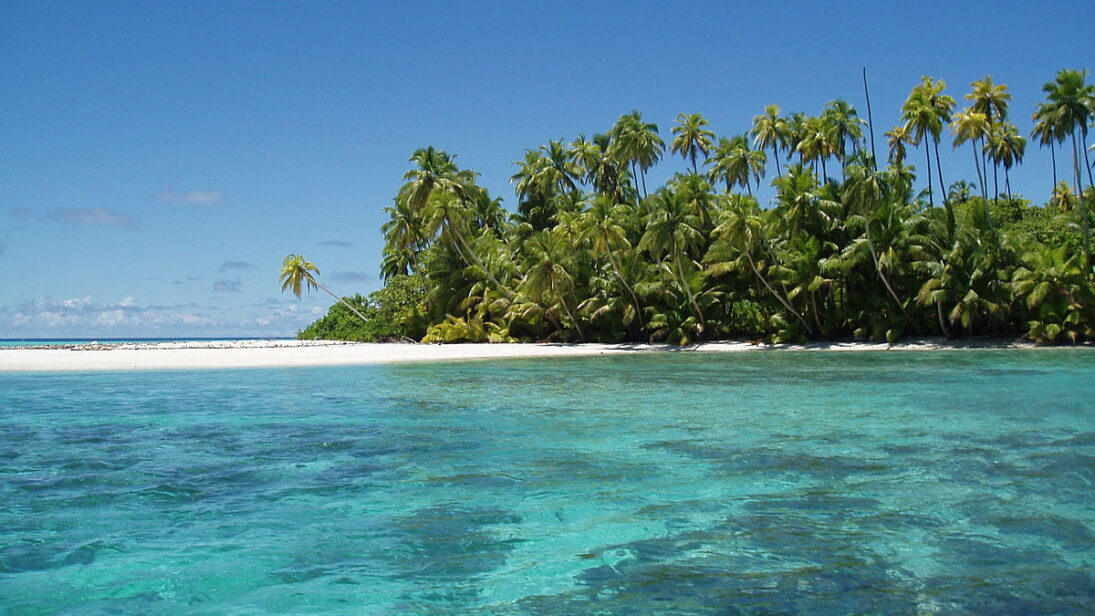
On October 17, 2022, the International Tribunal For the Law of the Sea (ITLOS) began hearing the dispute over the overlapping Exclusive Economic Zones (EEZ) between Mauritius and the Maldives. During the proceedings, the Maldives revealed its new position of recognizing Mauritius’ sovereignty over the Chagos islands. This policy shift has triggered a nationwide controversy, with Maldivian political leaders criticizing President Ibrahim Mohamed Solih for compromising the country’s sovereignty and selling off its EEZ.
A brief assessment of the Maldives’ stance on the Chagos issue indicates that the country has had no coherent strategy—it has shied away from formulating proactive policies till the archipelago’s sovereignty dispute resolves.
Yet, it has attempted to maximize its access to the EEZ through short-term calculations and inconsistent policies. While the Maldives’ latest stance is not a tectonic change from its previous policies, its domestic criticism and politicization are motivated by the Maldivian political leaders trying to make gains for the upcoming 2023 presidential elections.
What’s at stake?
As the colonial powers started to withdraw from the Indian Ocean in the 1960s, the United Kingdom separated the Chagos archipelago from Mauritius in 1965 to create the British Indian Ocean Territory (BIOT). This move allowed the United Kingdom to retain its strategic leverage in the Indian Ocean.
The sovereignty of the archipelago continues to be in dispute. While the United Kingdom governs Chagos, Mauritius claims that the islands are part of its territory – and that the UK’s governance of a former colonial territory violates international law. Chagos reflects Mauritius’ anti-colonial stance and provides an extended resourceful EEZ, which is vital for its exports and foreign reserves. Conversely, Chagos represents a strategic asset for the UK, as it has leased a critical military base at Diego Garcia to the United States for 50 years.
The Maldives, however, has overlapping EEZs with the Chagos islands when measured from its southernmost atoll, Addu atoll. The region is a rich fishing ground and is vital to the Maldives’ economy and exports. Fish exports contribute to 92 percent of the country’s domestic exports, and fisheries employ more than 20 percent of the country’s labor force. Given these benefits, the Maldives has been keen to maximize its access to the EEZ through several short-term calculations.
Inconsistent, yet Gaining
In 1992, the Maldives and the UK negotiated a draft agreement and agreed to divide their EEZs equidistantly. Although the agreement was not signed and never came into force, both countries continued to mark their EEZs as per the negotiations. In 2009, the Maldives attempted to engage with Mauritius and also divide the EEZs equidistantly, albeit with less success.
The next year, the UK decided to make the BIOT into a marine protected area, allegedly to complicate Mauritius’ further claims and ambitions to resettle in Chagos. Both Mauritius and the Maldives opposed this unilateral move, releasing a joint communique that agreed to take a collective stance against the UK and to resolve their disagreements concerning the EEZ.
In 2019, the International Court of Justice (ICJ) recognized Mauritius’ sovereignty over the Chagos and released an advisory opinion requesting the UK to end its illegal administration. In May of that year, the United Nations General Assembly also passed a non-binding resolution asking the UK to withdraw from the Chagos Archipelago, with 116 votes in favor and six votes in opposition. The Maldives also voted against this resolution, anticipating that it would risk losing its maritime territories if it was passed.
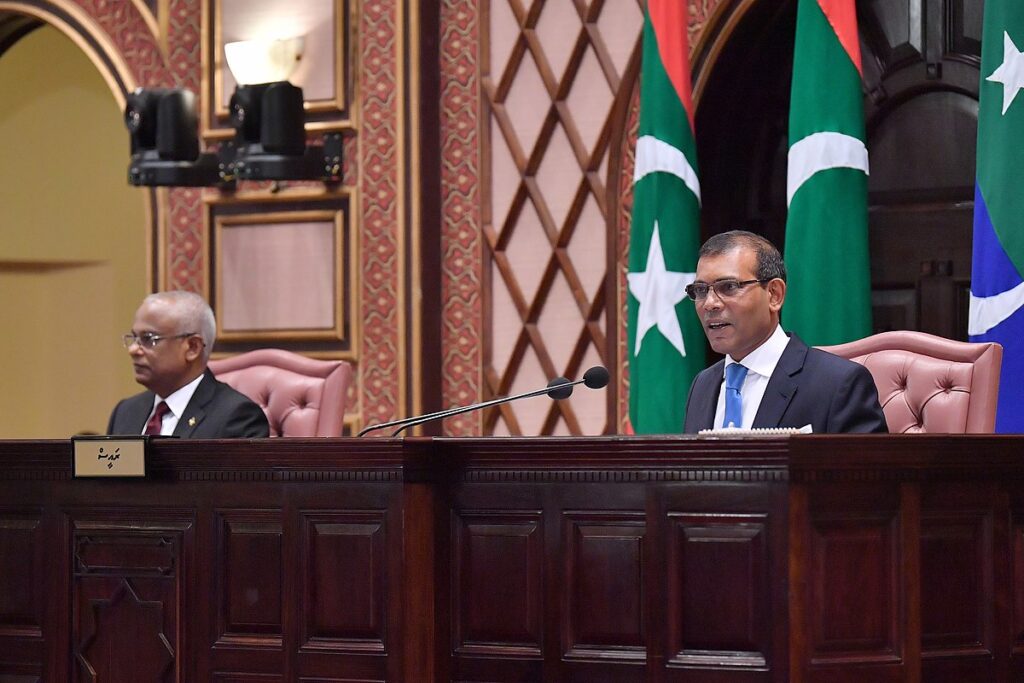
Continuum on Chagos
Mauritius approached the International Tribune for the Law of the Sea (ITLOS) in October 2019, claiming an additional 200 nautical miles from Chagos islands and increasing its EEZ overlap with the Maldives to 96,000 square kilometers (37066 square miles). The Maldives objected to the case by asserting that there could be no dispute with Mauritius when the sovereignty of Chagos itself was in question. However, the ITLOS used the ICJ’s verdict as a base for Mauritius’ legal claim over the archipelago, effectively transforming the ICJ’s opinion into a legal decision.
Three years later, as the proceeding commenced, the Maldives revealed its support for Mauritius’ claim over Chagos. This policy isn’t radically different from the Maldives’ previous stance; it continues to be influenced by the issue of the sovereignty of Chagos and its ability to access the EEZ.
First, the Maldives’ decision is an outcome of its realization that the sovereignty dispute over the Chagos has almost finished. The ICJ’s advisory opinion, the votes at the UNGA, and the ITLOS legal clarification indicate that the UK has been cornered legally and diplomatically. In early November this year, the UK also agreed to negotiate the handing over of Chagos to Mauritius.
Second, the Maldives’ lack of strategy compelled Mauritius to take legal actions, which has increased their EEZ overlap. Mauritius’ diplomatic efforts at the UN have also created more support for decolonization, putting the Maldives and its ‘anti-colonial’ rhetoric in a difficult spotlight. With the dispute nearing the end, the Maldives now realizes that it can only freely access its EEZ by negotiating with Mauritius, gaining its goodwill, and hoping to quickly resolve the disagreement.
Domestic and International Stakes
Maldives’ stance of acknowledging Mauritius’ sovereignty over Chagos is not a significant departure from its previous policy. Yet, Maldivian political leaders have accused President Solih of compromising the country’s EEZ and sovereignty. The critics include leaders of opposition, the government’s alliance partners, and rival factions within his party.
The Maldives heads to presidential elections in 2023 and raking up nationalist sentiments beforehand has been a common feature of Maldivian politics since its democratic transition in 2008.
Political parties in the Maldives have often pointed to Indian and (sometimes) Chinese development loans and assistance to accuse the incumbent or previous governments of compromising the country’s sovereignty. The Progressive Party of Maldives (PPM)’s highly partisan ‘India Out’ campaign is one such recent example.
As the election year approaches, the Chagos issue has permitted politicians to corner the current government. Politicians who hesitate to antagonize or risk close relations with two of Maldives’ crucial development partners, India and China, have found the Chagos issue apt to muster nationalist sentiments and further their electoral gains.
PPM’s leader and presidential candidate, Abdulla Yameen, has criticized the government for selling sovereignty in return for bribes. In an attempt to portray themselves as nationalists, the government’s allies, the Jumhooree Party and Maldives Reform Movement, have distanced themselves from the decision and have held the President solely responsible for this policy.
Further, as tensions within the ruling party, Maldives Democratic Party (MDP), have been exacerbated, some leaders are criticizing President Solih, their fellow party leader, hoping to make their cause for the upcoming presidential inter-party primaries. Notably, former President Nasheed has criticized the government’s stance, reversed his position on the UK’s decision to make Chagos a fishing-free zone, and has also publicly claimed Chagos as a part of the Maldives.
As the Maldives enters its election year, it has continued to face its prevalent foreign policy challenges: inconsistent policies and the politicization of its relationships with outside powers. Addressing these issues has become even more vital for the island nation as its interactions increase with new partners like the UK, the United States, and Australia. Failing to do so will only increase its costs in this emerging multi-polar world.
***
Image 1: Salomons Atoll in the Chagos via Wikimedia Commons
Image 2: President Solih addresses the People’s Majlis 2021 via Wikimedia Commons
